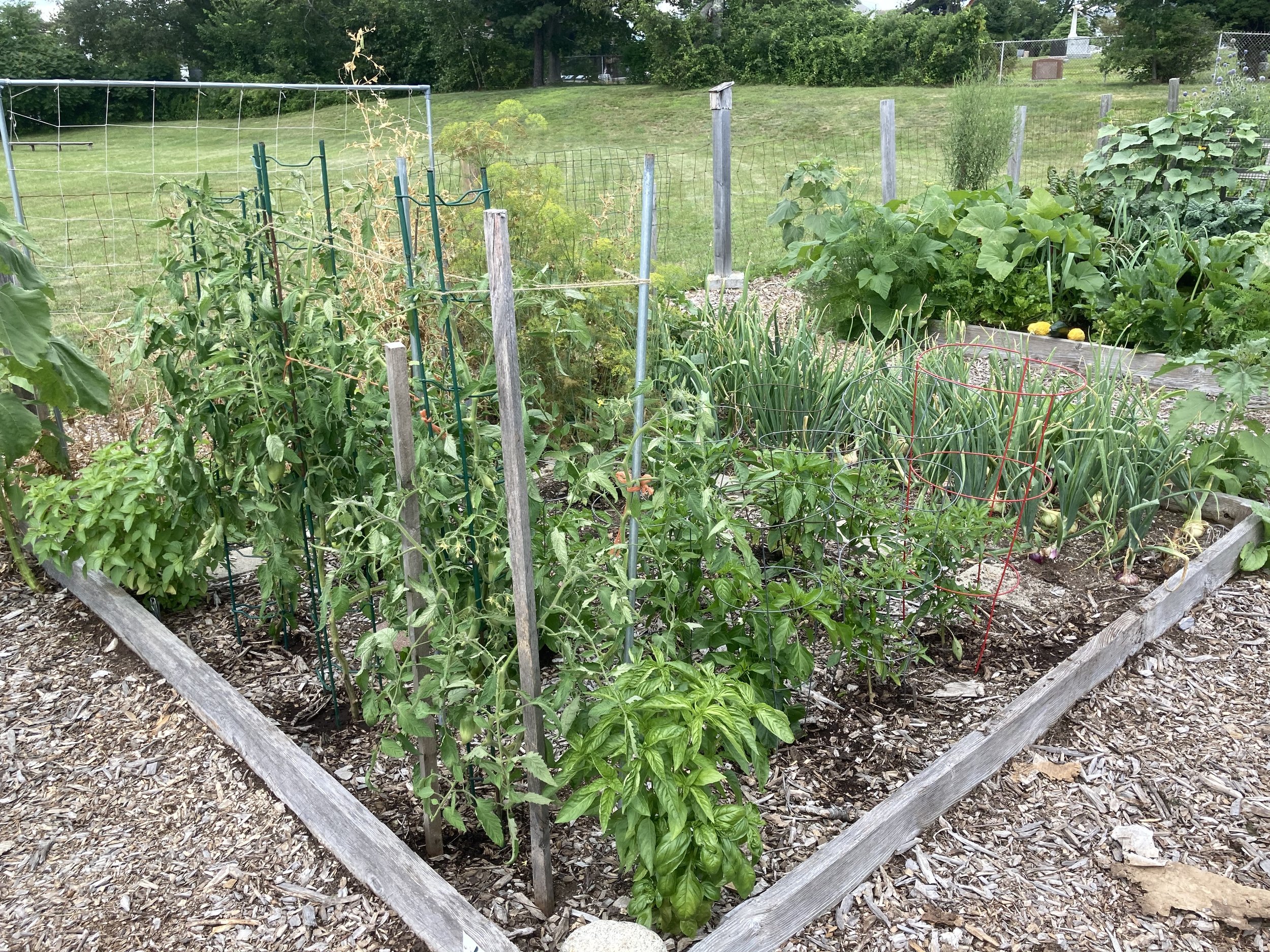Growing with Microbes! Community Garden Demonstration Plot
at Sawyer Park in South Portland, Maine
Community Garden Demonstration Plot- South Portland, Maine
The mission of the Living Soil Network, and the goal of this project, is to educate through demonstration. All plants in nature grow beautifully without the addition of organic or inorganic fertilizers. They are able to do this because of their symbiotic relationships with microbes. Our project is demonstrating that our vegetable gardens can also grow vibrant, abundant food without any inputs, besides microbes! Diverse and balanced soil ecosystems grow healthier plants, healthier humans, and a healthier planet.
We do not use traditional organic growing methods. Chemicals and fertilizers, even organic ones, damage the microbial ecosystem. Continually adding ecologically disruptive materials to our garden plots results in high levels of soil bacteria. Because almost all available composts are bacterially dominated, adding more and more of this material to a garden increases co2 blow off. Contrary to popular belief, tilled organic bacterial soils do not store stable soil carbon. Only adequate levels of soil fungi will do this. In reality, bacterially dominant garden soils are likely increasing global warming. When levels of beneficial soil bacteria are not matched by beneficial soil fungus, and by soil predators, the entire soil ecosystem spins out of balance. As a result, plants do not get the nutrition they need. In this way, human health is affected. Our unique approach is truly regenerative. By establishing a diverse microbial ecosystem that is balanced between bacteria and fungi, we enable these microscopic communities to clean our soil and water, while providing incredibly nutritious food.
The Growing With Microbes Community Garden Demonstration Plot can be found at the Sawyer Park Community Garden in South Portland, Maine. During the first year, the soil biology assessment indicated high levels of soil bacteria and not much else. During the course of the 2023 growing season, we were able to raise the fungal levels, reduce the bacterial levels, and greatly increase the levels of bacterial predators.
In 2024, we will continue to add our fungal dominant soil inoculants. The results will be increased soil nutrition, which will strengthen the plants’ immune systems and allow them to ward off predators and pathogens. The vegetables will provide greater nutrition for the consumers, and the restored fungi will sequester long term stable carbon into the soil. The graphs below show changes in the microbial populations of the soil, as well as the fungal:bacterial ratios during the 2023 growing season. In 2024, the soils in this garden should approach the fungal:bacterial ratio of approximately .75 to 1.


